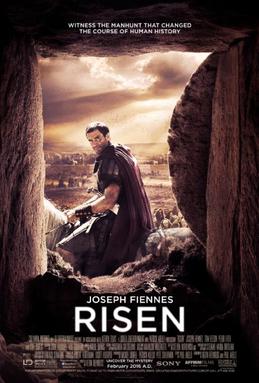“Risen” is
a 2016 American Biblical drama, freely based on some of the events in the New
Testament. The main character, tribune Clavius, is non-Biblical but probably
inspired by Longinus, the Roman soldier who pierced the side of Jesus at the
crucifixion and later converted to Christianity. The plot is set at the time of
the crucifixion, which Clavius is ordered by Pontius Pilate to supervise. When
the body of Jesus (called Yeshua in the film) mysteriously disappears, Pilate
commands Clavius to investigate the case and apprehend any suspects. The
tribune soon realize that the case is stranger than he expected, and eventually
discovers that Jesus is alive and well, that is, resurrected from the dead. The
film ends somewhat inconclusively, with the Roman officer apparently converting
to Christianity after the Ascension, while the disciples return to Jerusalem to
await Pentecost. Clavius, fearing capture by Pilate, wanders into the desert to
an uncertain fate…
The film
is intriguing on a number of points. For starters, it´s not very “pious”,
except at the end. Indeed, many of the characters or situations might have been
included in Monty Python´s classical comedy “Life of Brian”! The disciples
speak with rustic British accents and come across as a bunch of holy fools. Mary
Magdalene (a reformed harlot as usual) speaks in stereotypical riddles. A
recurring gag in the film is the line “Pilate summons you”, uttered at least
five times. The disciples can´t seem to remember the Lord´s Prayer. Jesus is
more serious, but I couldn´t help noticing his “Jewish” nose…and his striking
likeness to Swedish New Age pop star Thomas Di Leva! But OK, the latter is
presumably a co-incidence.
Another
intriguing feature is that the film is very “orthodox” theologically speaking
(orthodox with a lower case “o”, that is). Thus, the resurrection is portrayed
as physical, not simply spiritual. The origins of the Shroud of Turin are
explained – yes, it really was the burial cloth of Jesus. The Ascension is also
physical or quasi-physical, with Jesus clearly being lifted *up* into Heaven.
On other points, “Risen” emphasizes the Jewish character of early Christianity.
Jesus is called Yeshua, God is constantly referred to as Yahweh, and Yeshua is
thus the son of Yahweh. His Messiah-ship and kingship are often mentioned as a
tie-in to Jewish beliefs. Yet, at the end, Jesus inaugurates the new
dispensation by calling on the disciples to convert all the Gentiles...
An
interesting scene features Clavius attempting to pray to Yahweh in
Roman-polytheistic fashion, promising him “temples and many games” if he gives
him a sign relating to the events he is investigating. Another strange
fact: when Swedish TV recently showed this film, Clavius was referred to as an “agnostic”
in the program presentation, when he is explicitly depicted as a devotee of
Mars in the film.
This mixture
of Monty Python and “Ben Hur” isn´t the best film ever made, but I admit it
wasn´t *that* bad either, if you can stand the somewhat peculiar angle…

No comments:
Post a Comment